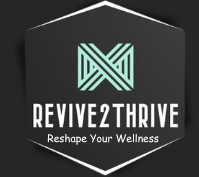Ever found yourself doing something, then feeling guilty or regret about it later?
I did that because ………………”and you start justifying it to yourself over and over?
A nagging voice in your head kicks in time to time, questioning your choices?
Feels embarrassed or ashamed about something you’ve done, desperately trying to keep it under wraps from others?
You end up doing stuff just because everyone else is doing it, or because you’re afraid of missing out, even if it’s not really your cup of tea?
So, you been there, right?
This post for you, my dear friends! Let’s explore underline cause of these inner conflicts to resolve and empower ourselves by becoming ted more smart, aware and mindful to cope with these unexplainable thoughts. We’re not alone in this struggle! It’s like a secret club of self-doubters and overthinkers.
Overview :
In psychology, the term “Inner conflict” is known as “cognitive dissonance.”
When an individual holds conflicting beliefs, attitudes, or values, or when their actions are inconsistent with their beliefs or attitudes, a sense of discomfort or tension arises in the mind, often manifesting as feelings of guilt, anxiety, stress, or even confusion.
Cognitive dissonance is common phenomenon for people to engage in internal chat with themselves when they’re trying to figure out their emotions and feelings after doing something.
It’s a fundamental concept in psychology and has significant implications for understanding decision-making, attitude change, and behaviour. Sometimes, what you thought and what you did don’t quite match up, and that can make you feel uneasy or guilty.
Mismatches Between Your Beliefs and Actions can lead to feelings of discomfort, but you know what? Sometimes feeling that discomfort can actually help you grow and change
Values & Belief Conflicts:
Value Conflicts are an inevitable part of human life. Guilt and discomfort arise when our actions or decisions contradict our deeply held values. Individuals’ beliefs, principles, or priorities clash with those of others. While these conflicts may seem purely intellectual or philosophical, their psychological ramifications can be profound.
Values: Provide a sense of purpose and direction (a core principle)
Beliefs: Shape our attitudes and perceptions.
Example 1: someone who deeply value environment protection. They might feel pretty uneasy if their job involves working for a company that’s all about making polythene, which isn’t exactly eco-friendly.
Example 2: Imagine someone whose core value is Honesty. If they end up having to lie in court because they have a personal relationship with the person on trial, that could really mess with their head leaving them feeling guilt, Shame, or self-doubt, as the person acted in a way that feels dishonest and contrary to their identity of Honesty
Such inner conflict might spill over into their behaviour and responses, causing issues that complicate their relationships with others and even identity crisis, where the individual feels disconnected from their true self, unsure of who they are or what they truly stand for anymore.
Example 3: Someone who deeply value environment protection. They might feel pretty uneasy if their job involves working for a company that’s all about making polythene, which isn’t exactly eco-friendly.
Working for such company, the person is conflicted, as their job supports a product that goes against their environmental values. This creates guilt and frustration, as they struggle to reconcile their passion for protecting the planet with their role. They may start to feel like a hypocrite, torn between their beliefs and their job, which causes guilt, frustration, and internal turmoil.
Few Common Examples of Conflicting Value & Beliefs we’ve all noticed in our own lives :
- You want to be healthy, but you don’t exercise regularly or while dieting often have cheat meals. You feel guilty as a result because your value is “Health is important”. Result of the contradiction between Value (“Health is important”) and belief (that they should exercise regularly and avoid cheat meals) is guilt
- Your Belief(Perception) is that “Smoking/Drinking is harmful to health,” but you do it anyway. You rationalize this action by valuing immediate relief from stress and believing that it helps you feel a sense of control over the consequences. This rationalization helps ease the guilt or discomfort caused by the conflict.
- You’d like to build up your savings (Core Value), but you often spend extra cash as soon as you get it, going against your core value. Later, you regret this decision, especially when faced with an unexpected expense that you can’t cover. This conflict between your actions and your value leads to feelings of regret or guilt.
- You have a long to-do list but spend the day watching your favourite shows or Instagram reels instead. Feeling guilty for not being productive, you don’t want your spouse to know, so you try to make it look like you’ve worked hard all day. This creates a conflict between your intentions (getting things done) and your actions, leading to feelings of guilt and dishonesty.
Remember, it’s natural to encounter conflicts between values and beliefs. What’s important is how you navigate them with integrity and mindfulness.
Challenges Of Value & Belief Conflicts
1. The Burden of Moral Agony:
Moral turmoil occurs when we recognize the morally correct course of action but find ourselves unable to act or fulfil it due to external constraints or conflicting values. This clash between our ethical beliefs and situational limitations can evoke emotions of guilt, frustration, and powerlessness.
Consider a passionate animal lover who works at a company that conducts animal testing for cosmetic products. This conflict between his values and job responsibilities can cause significant inner turmoil and ethical dilemmas.
2. Navigating Identity Crises:
Identity Struggle often arise when our core beliefs are closely linked to our self-perception. Confronted with opposing values or societal expectations, we may engage in introspection, re-evaluating our own identity, beliefs, and life’s direction. This internal struggle can evoke emotions of confusion, anxiety, and a decline in self-confidence.
Example: Imagine someone who’s always focused on making money, but suddenly feels drawn to a creative job that doesn’t pay well. They’re torn between what they’ve always been taught and what truly makes them happy. This makes them doubt themselves, their beliefs, and where they’re headed in life, leading to feelings of confusion and anxiety. These thoughts can make them feel unsure of themselves and less confident than before.
Technique To Resolve Conflicting Value & Beliefs
1. Values Clarification Exercise:
Identify Core Values: Take some time to reflect on your core values – those principles or beliefs that are most important to you. For example, you might list Health, Honesty, Compassion, Family, Career success, or Personal growth.
Rank Your Values: Once you have a list of values, prioritize them based on their importance to you. Consider which values you are not willing to compromise on and which ones are more flexible. For instance, you might rank family as your top value, followed by honesty and career success.
Identify Conflicting Beliefs: Reflect on specific situations where you have experienced confusion or guilt due to conflicting beliefs or values. For example, you might recall a time when you had to choose between being honest with a friend and protecting their feelings, which challenged your value of honesty against your value of compassion.
Explore the Origins: Dive deeper into the origins of your values and beliefs. Consider how your upbringing, culture, past experiences, and influential figures have shaped your worldview. For instance, you might reflect on how your parents’ emphasis on honesty and integrity influenced your own values.
Re-evaluate Assumptions: Challenge any assumptions or beliefs that may be contributing to the conflict. Ask yourself why you hold certain beliefs and whether they are based on evidence, personal experience, or societal norms. For example, you might question whether your belief that success requires sacrificing personal relationships is valid or if it’s a societal stereotype.
Seek Resolution : Look for ways to reconcile conflicting values or beliefs. Explore alternative perspectives, compromise solutions, or reframing techniques that allow you to integrate different viewpoints while staying true to your core values. For instance, you might find a compromise by being honest with your friend in a gentle and empathetic way, thus honoring both honesty and compassion.
Take Action: Implement the resolution strategies you have identified in real-life situations. Practice living in alignment with your core values while navigating conflicting beliefs with integrity and authenticity. For example, you might choose to prioritize honesty in your interactions with others while also considering their feelings and well-being.
Reflect and Adjust: Regularly reflect on your experiences and decisions in light of your core values. Evaluate whether your actions align with your values and beliefs, and make adjustments as needed to maintain congruence and inner harmony. For instance, you might reflect on how your recent actions have aligned with your core values of honesty and compassion, and adjust your behavior accordingly in future situations.
By engaging in values clarification exercise, you will gain clarity on your core values, identify conflicting beliefs, and develop strategies to reconcile them effectively. This process enables you to make confident decisions and take action without experiencing guilt or anxiety afterward, resulting in increased fulfilment and well-being. If you find it challenging to conduct the exercise independently, feel free to reach out to me for personalized guidance at revive2thrivewithmg@gmail.com
2. Reframing:
Reframing is basically shifting or rewiring our perspective or interpretation of a situation in order to change its meaning and reduce mental distress. When faced with conflicting beliefs, emotions, or values, reframing allows us to view the situation in a more positive or constructive light, which can help us alleviate inner turmoil and promote mental well-being.
This technique involves consciously challenging negative or unhelpful thoughts and replacing them with more adaptive or empowering perspectives, ultimately leading to greater clarity, resilience, and inner peace.
1. Belief in independence Vs. belief in family Commitment.
Reframe: Instead of seeing independence and family commitment as opposing values, view them as complementary. Embrace independence while also maintaining strong connections with family members.
2. Belief in ambition or following passion Vs. belief in work-life balance.
Reframe: Rather than viewing ambition and work-life balance as conflicting, see them as mutually beneficial. Pursue ambitious goals while also prioritizing self-care and personal well-being.
3. Belief in honesty Vs. belief in diplomacy.
Reframe: Instead of perceiving honesty and diplomacy as contradictory, recognize them as complementary approaches to communication. Practice honesty with tact and sensitivity, finding diplomatic ways to express truth.
4. Belief in tradition Vs. belief in progress.
Reframe: Instead of seeing tradition and progress as opposing forces, acknowledge that traditions can evolve over time to embrace new ideas and innovations. Honor tradition while also embracing positive change and growth.
5. Belief in individual freedom Vs. belief in social responsibility.
Reframe: Rather than viewing individual freedom and social responsibility as conflicting, see them as interconnected. Exercise personal freedom while also recognizing the importance of contributing to the well-being of society.
These reframes helps to shift perspective and encourage a more nuanced understanding of conflicting values and beliefs, ultimately promoting harmony & peace within.
Value conflicts are an inherent part of the human experience, challenging us to reconcile competing beliefs, principles, and priorities. By understanding the psychological impact of these conflicts and adopting strategies for resolution, we can navigate them with greater resilience, integrity, and compassion, fostering greater harmony and understanding in our relationships and communities.


















